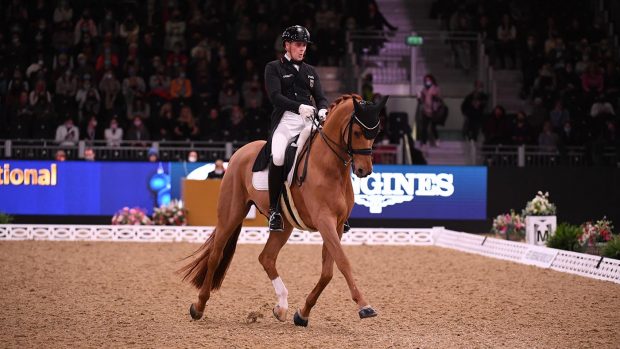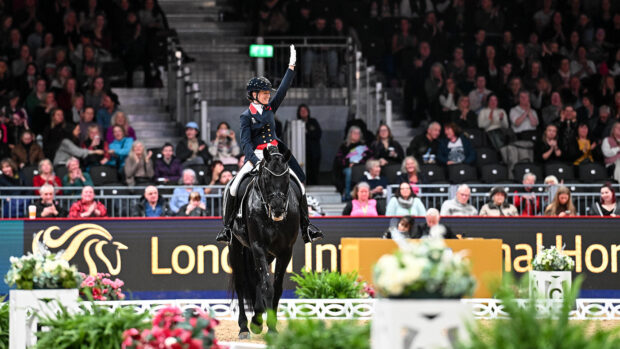Britain has never been beaten at a para dressage championship.
But other nations have been creeping closer during the past four years, and will be bidding to top of the podium for the first time in Rio.
We’ve crunched the numbers to find out just how likely that scenario could be — and what the Brits have to do to continue the gold run.
The main challengers are likely to be the Netherlands and Germany, who both joined Britain on the podium at the World Equestrian Games in 2014 and the European Championships in 2015.
Germany also claimed silver in London, and again at the European Championships in 2013.
On paper, the expected four members of the British team — Sophie Christiansen (Athene Lindebjerg), Anne Dunham (Lucas Normark), Natasha Baker (Cabral) and Sophie Wells (Valerius) — stand head and shoulders above the rest.
None of the four has an average mark below 70% in either the team or individual tests, which contribute to the overall team scores.
In fact, the lowest average mark — Sophie Wells’ team test average — is still a healthy 73.46%. Britain’s Sophie Christiansen boasts the highest personal best and average scores of all 12 riders across the three teams (see below).
If each rider in all three teams equalled their top score to date in each test, and the lowest average score per team is dropped, the Brits would win the gold by a country mile, with a total of 463.12. But Germany and the Netherlands would finish neck and neck, the Germans just creeping ahead with 447.03 to the Netherlands’ 446.3.
But let us assume that not every rider will recreate their personal best in the pressurised situation of a Paralympic Games, and the scoreboard could look a little different.
The Brits’ total based on the average scores of the top three riders is 451.49 – uncomfortably close to the top scores of the Germans and the Dutch, who will almost certainly pull some new personal bests out of the bag.
And if we compare the three nations’ average score totals, Britain would still lead comfortably, but the Netherlands would edge out the Germans, with 433.42 compared to 431.12.
Related articles:
- Beginners’ guide to Paralympic dressage at Rio 2016
- Major ‘fill the seats’ campaign for Rio Paralympics
- Weather, flight times and facilities: what will be the conditions in Rio for our riders?
So, if Britain perform averagely, and both other teams better their previous performances, the Brits’ crown could be in danger. But make no mistake, Britain will have arrived in Rio on the absolute top of their game, and some of their current personal bests may not be personal bests for long!
The bigger question is, who will win the wrestle for silver and bronze? There’s little to choose between Germnay and the Netherlands, plus don’t discount nations such as Denmark and Norway, who have worked hard since London and cannot be ruled out in Rio.
The numbers:
Personal best team (average)
Personal best individual (average)
Britain 463.12 (451.49)
Sophie C 77.69 (76.56) 80.91 (78.48)
Anne 75.26 (74) 76.26 (74.24)
Natasha 76.2 (74.04) 76.8 (74.17)
Sophie W 74.59 (73.46) 75.64 (74.25)
Netherlands 446.3 (433.42)
Frank Hosmar 74 (71.94) 76.83 (73.52)
Nicole Den Dulk 75.73 (71.94) 72.93 (71.75)
Demi Vermeulen 73.48 (71.54) 73.9 (71.99)
Estee Gerritson 73.68 (72.21) 73.13 (72.06)
Germany 447.03 (431.12)
Hannelore Brenner 69.73 (68.33) 69.91 (68.53)
Elke Philipp 77.39 (74.01) 77.53 (74.52)
Alina Rosenberg 74.13 (70.13) 74.08 (72.6)
Stefan Zeibig 71.86 (69.21) 72.04 (70.65)




